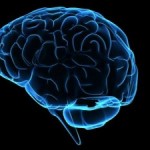 There is a flurry of articles appearing in both the medical and popular press as many experts are attempting to change the criteria for diagnosing Alzheimer’s disease. The new criteria are based on the “amyloid hypothesis.’ Amyloid is brain protein that sometimes goes awry and is associated with the formation of plaques on neurons. The theory is based on the belief that abnormal amyloids cause Alzheimer’s disease. If this is so, the theory suggests that treatment strategies should be based on arresting or reversing the creation of amyloid plaques. Most current clinical trials of medications for Alzheimer’s disease are based on this hypothesis. By the newly proposed criteria, finding plaque on a PET scan or in cerebrospinal fluids would be cause to diagnose Alzheimer’s disease in persons without memory loss or other symptoms. If adopted, many would be told either that they have or that they are on the way to developing Alzheimer’s disease.
There is a flurry of articles appearing in both the medical and popular press as many experts are attempting to change the criteria for diagnosing Alzheimer’s disease. The new criteria are based on the “amyloid hypothesis.’ Amyloid is brain protein that sometimes goes awry and is associated with the formation of plaques on neurons. The theory is based on the belief that abnormal amyloids cause Alzheimer’s disease. If this is so, the theory suggests that treatment strategies should be based on arresting or reversing the creation of amyloid plaques. Most current clinical trials of medications for Alzheimer’s disease are based on this hypothesis. By the newly proposed criteria, finding plaque on a PET scan or in cerebrospinal fluids would be cause to diagnose Alzheimer’s disease in persons without memory loss or other symptoms. If adopted, many would be told either that they have or that they are on the way to developing Alzheimer’s disease.
The idea behind this change is to develop treatments before there are symptoms such as memory loss. There is a feeling that the failure of amyloid treatments is due to starting treatments after the disease has developed or progressed too far. Although this is a noble goal, there are a few reasons to be concerned based on current knowledge. First, these decisions are being made based on theory. It is still unclear whether the plaques cause the disease or are a result of the disease. This fact in combination with the failure of amyloid treatments so far to induce clinical improvement is a concern. If amyloids are not the cause of Alzheimer’s disease, we are causing a great deal of anguish for the new cases that would be falsely identified. Second, amyloids are only part of the picture. People with Alzheimer’s disease usually have other pathologies such as tangles caused by a tau protein and vascular damage from mini-strokes. Third, there are a substantial number of people who meet the autopsy criteria (including plaques) for Alzheimer’s disease that have no clinical symptoms.
I feel that we need to be more careful about converting research criteria into clinical diagnostic criteria. The new guidelines are fine for clinical trials based on theory and hope. There will be a large economic and emotional price to pay for these changes. The additional testing is expensive as are the drugs that would be used. But I am even more concerned with the emotional toll. Not every case of memory loss is a result of Alzheimer’s disease (which by current diagnostic criteria involves more than just memory loss). Not all memory loss produces disability. Not all memory loss leads to dementia. There is the security that we derive from being able to label something. If we can put a label on something we have a false sense of understanding it. This is clearly not true for Alzheimer’s disease. We need to focus on functional strengths and weaknesses in abilities rather than diagnostic labels and medical tests. This allows us to treat changes in brain function proactively based on what still works rather than being so focused on what doesn’t work.








